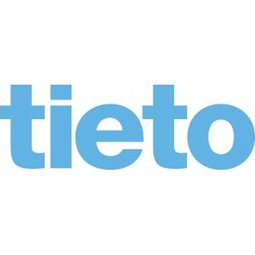
Technology Category
- Analytics & Modeling - Machine Learning
- Sensors - Temperature Sensors
Applicable Industries
- Education
- Healthcare & Hospitals
Applicable Functions
- Product Research & Development
Use Cases
- Clinical Image Analysis
- Root Cause Analysis & Diagnosis
Services
- Data Science Services
- System Integration
The Customer
Helsinki University Hospital (HUS)
About The Customer
Helsinki University Hospital (HUS) is a leading healthcare provider in Finland. In collaboration with Tietoevry, they have co-developed the data lake service that enables the development of advanced treatments and optimized care pathways in healthcare while also accelerating HUS’ world-class medical research. The Rare Diseases eCare for Me project, which utilizes HUS’s data lake service and its new HUS Acamedic research environment, is a part of the CleverHealth Network ecosystem. The project aims to use real-world data and machine learning to develop an AI solution that can provide more effective and faster treatment for patients with rare diseases.
The Challenge
Helsinki University Hospital (HUS) and Tietoevry were faced with the challenge of building a certified trusted Research Environment that is compliant with the EU General Data Protection Regulation (GDPR) and the Findata legislation on the secondary use of national social and health data. The goal was to accelerate medical research with a modern, high-security digital environment with the latest analytics capabilities. The challenge was particularly significant in the context of diagnosing and treating rare diseases, which are often difficult to diagnose due to their rarity and the extensive research data required. The cost for the public healthcare sector can be as much as 40 times greater before the diagnosis is found, making the need for a more efficient diagnostic process crucial.
The Solution
The solution was the development of a data lake service and the HUS Acamedic analytics workspace. These tools provide doctors and researchers with access to large data masses, comprehensive analytics tooling, and the latest AI technology. The eCare for Me project, a part of the CleverHealth Network ecosystem, utilizes HUS’s data lake service and its new HUS Acamedic research environment. Real world data and machine learning fuel the development of an AI solution that can be used to provide more effective and faster treatment for patients with rare diseases. The HUS Acamedic analytics workspace enables the analysis and research of large quantities of data, saving the healthcare personnel’s time. The cloud-based solution also offers scalable computing capacity that enables the fast analysis of massive datasets at low costs and with no needed investments to own hardware.
Operational Impact
Quantitative Benefit

Case Study missing?
Start adding your own!
Register with your work email and create a new case study profile for your business.
Related Case Studies.

Case Study
Hospital Inventory Management
The hospital supply chain team is responsible for ensuring that the right medical supplies are readily available to clinicians when and where needed, and to do so in the most efficient manner possible. However, many of the systems and processes in use at the cancer center for supply chain management were not best suited to support these goals. Barcoding technology, a commonly used method for inventory management of medical supplies, is labor intensive, time consuming, does not provide real-time visibility into inventory levels and can be prone to error. Consequently, the lack of accurate and real-time visibility into inventory levels across multiple supply rooms in multiple hospital facilities creates additional inefficiency in the system causing over-ordering, hoarding, and wasted supplies. Other sources of waste and cost were also identified as candidates for improvement. Existing systems and processes did not provide adequate security for high-cost inventory within the hospital, which was another driver of cost. A lack of visibility into expiration dates for supplies resulted in supplies being wasted due to past expiry dates. Storage of supplies was also a key consideration given the location of the cancer center’s facilities in a dense urban setting, where space is always at a premium. In order to address the challenges outlined above, the hospital sought a solution that would provide real-time inventory information with high levels of accuracy, reduce the level of manual effort required and enable data driven decision making to ensure that the right supplies were readily available to clinicians in the right location at the right time.

Case Study
Gas Pipeline Monitoring System for Hospitals
This system integrator focuses on providing centralized gas pipeline monitoring systems for hospitals. The service they provide makes it possible for hospitals to reduce both maintenance and labor costs. Since hospitals may not have an existing network suitable for this type of system, GPRS communication provides an easy and ready-to-use solution for remote, distributed monitoring systems System Requirements - GPRS communication - Seamless connection with SCADA software - Simple, front-end control capability - Expandable I/O channels - Combine AI, DI, and DO channels

Case Study
Driving Digital Transformations for Vitro Diagnostic Medical Devices
Diagnostic devices play a vital role in helping to improve healthcare delivery. In fact, an estimated 60 percent of the world’s medical decisions are made with support from in vitrodiagnostics (IVD) solutions, such as those provided by Roche Diagnostics, an industry leader. As the demand for medical diagnostic services grows rapidly in hospitals and clinics across China, so does the market for IVD solutions. In addition, the typically high cost of these diagnostic devices means that comprehensive post-sales services are needed. Wanteed to improve three portions of thr IVD:1. Remotely monitor and manage IVD devices as fixed assets.2. Optimizing device availability with predictive maintenance.3. Recommending the best IVD solution for a customer’s needs.

Case Study
HaemoCloud Global Blood Management System
1) Deliver a connected digital product system to protect and increase the differentiated value of Haemonetics blood and plasma solutions. 2) Improve patient outcomes by increasing the efficiency of blood supply flows. 3) Navigate and satisfy a complex web of global regulatory compliance requirements. 4) Reduce costly and labor-intensive maintenance procedures.

Case Study
Cloud-based healthcare solution for Royal Philips
Royal Philips wanted to launch its cloud-based healthcare solution HealthSuite Digital Platform in China to deliver services to help cope with challenges related to urbanization and population growth. Philips wanted to achieve this goal by combining mobile, cloud computing and big data technologies. To bring this platform and product to market, Philips required cloud computing and local technical service capabilities in China, in addition to a flexible IT infrastructure that could handle user requests.








